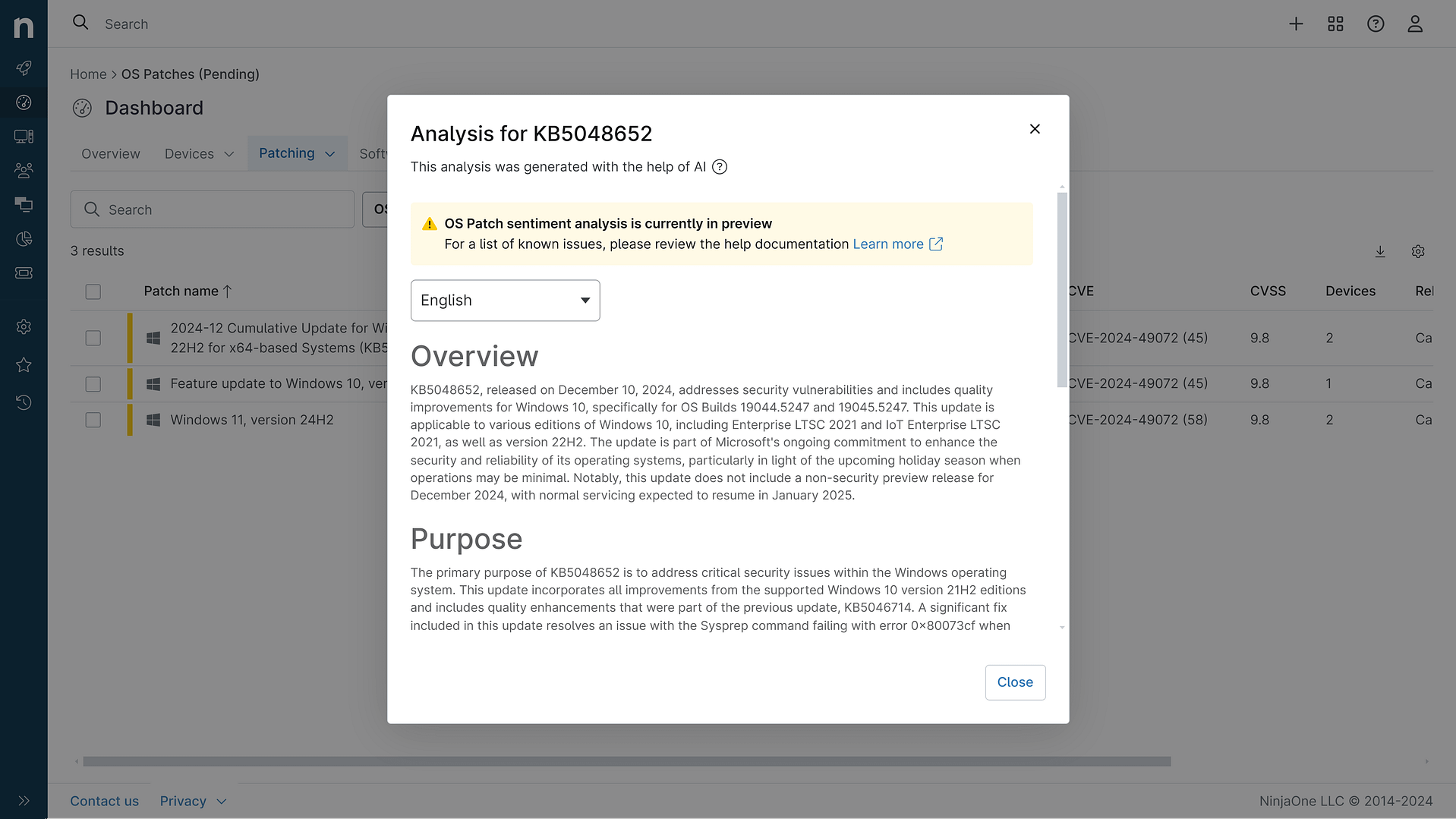KB5039885: Overview with user sentiment and feedback
Last Updated December 23, 2024
Probability of successful installation and continued operation of the machine
Overview
The KB5039885 update, released on July 9, 2024, is a cumulative update for the .NET Framework 4.8, specifically targeting Windows 10 version 1607 and Windows Server 2016. This update is part of Microsoft's ongoing efforts to enhance the security and reliability of their software. It includes critical security improvements and addresses various reliability issues that have been reported by users. The update is recommended for installation as part of regular maintenance routines to ensure systems remain secure and efficient.
One of the key highlights of this update is the resolution of a significant security vulnerability identified as CVE-2024-38081, which could allow for remote code execution. This vulnerability has been addressed to enhance the overall security posture of systems running the .NET Framework. Additionally, the update includes quality improvements, particularly in the handling of memory leaks associated with AccessibleObjects in WinForms applications, which can lead to better performance and stability.
General Purpose
The primary purpose of KB5039885 is to provide essential security and reliability enhancements for the .NET Framework 4.8. This update specifically addresses a critical elevation of privilege vulnerability, CVE-2024-38081, which could potentially allow attackers to execute arbitrary code remotely. By applying this update, users can mitigate the risks associated with this vulnerability. Furthermore, the update improves the handling of memory management in WinForms applications, addressing issues related to memory leaks that can degrade application performance over time. Overall, this update is crucial for maintaining the integrity and performance of applications relying on the .NET Framework.
General Sentiment
The general sentiment surrounding KB5039885 appears to be mixed. While many users acknowledge the importance of the security fixes and improvements in reliability, there are concerns regarding the breaking changes introduced by the update. Specifically, the modification of the System.IO.Path.GetTempPath method's return value has raised questions among developers and users who rely on this functionality. Some users have expressed frustration over the need to adapt their applications to accommodate these changes. However, the overall consensus is that the security enhancements are necessary, and users are encouraged to apply the update despite the potential for initial disruptions.
Known Issues
- The update introduces breaking changes to the System.IO.Path.GetTempPath method, which may affect applications relying on its previous behavior.
- Users may experience differences in the return values of GetTempPath and GetTempPath2 APIs, particularly in SYSTEM versus non-SYSTEM processes.
- A temporary workaround exists to opt-out of the new behavior, but it is not recommended as it disables the critical security fix.
Disclaimer: We take measures to ensure that AI-generated content is of the highest possible quality, but we cannot guarantee its accuracy and recommend that users do their own independent research. Generated on 2024-12-21 09:57 PM
